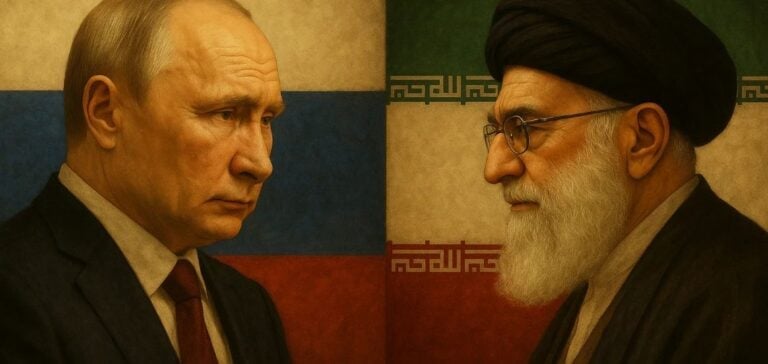Russian President Vladimir Putin has proposed to his American counterpart Donald Trump to intervene in the nuclear dispute between the United States and Iran, according to a statement from the Kremlin released on June 5. This mediation offer follows a phone call between the two leaders, during which Putin mentioned his willingness to “contribute to the resolution” of the crisis by using his close ties with the Islamic Republic.
A strategic signal of openness from Moscow
According to Dmitry Peskov, spokesperson for the Russian presidency, Moscow believes that its partnership with Iran could be used to support de-escalation on the nuclear issue. The official specified that Russia, which “maintains a close partnership with Tehran,” is “ready to make use of this partnership” to “contribute to the resolution of the Iranian nuclear issue.”
Donald Trump confirmed that Vladimir Putin hinted at his interest in taking part in the indirect talks between Washington and Tehran. Five rounds of negotiations have taken place since April under Omani mediation, without leading to a breakthrough.
A persistent deadlock on enrichment
The main sticking point remains uranium enrichment, on which Iran refuses to make concessions without the lifting of economic sanctions. “No enrichment, no deal,” summarised Iranian Foreign Minister Abbas Araghchi on the platform X. He reiterated that his country ruled out freezing its civil nuclear programme, citing its right to energy development.
Donald Trump responded by accusing Iran of “dragging its feet,” while Iran’s Supreme Leader, Ali Khamenei, rejected the latest U.S. proposal, claiming it was incompatible with the founding principles of the regime.
Strengthened Russia-Iran alignment
Since the start of Russia’s military offensive in Ukraine in 2022, Moscow and Tehran have deepened their cooperation. In January, the two countries signed a “comprehensive strategic partnership” agreement, including Russian support for Iran’s civil nuclear programme. The Kremlin reaffirmed its support for a “peaceful settlement” and for Iran’s “right” to civilian nuclear energy.
This willingness to play an active role in nuclear diplomacy could reposition Moscow as a key interlocutor in a matter so far dominated by bilateral tensions between Washington and Tehran.






















